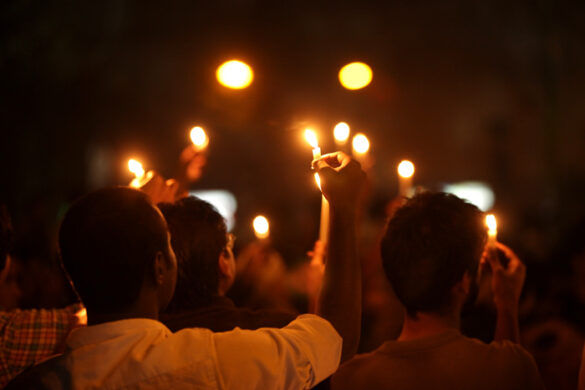Brussels hears call for international recognition of Bangladesh Genocide

With participation of speakers from four continents, the Press Club Brussels reverberated on Saturday March 25th with the call for international recognition of Bangladesh Genocide. The speakers included scholars, family members of victims and genocide survivors who participated in the discussion event organised by the Embassy of Bangladesh in Brussels and Mission to the European Union to commemorate Genocide Day.
Professor Gregory H. Stanton, Founding President of Genocide Watch, founder of the Cambodian Genocide Project, founder of the Alliance Against Genocide, and former President of the International Association of Genocide Scholars, United States highlighted the important aspect of ‘denial’ in a genocide which is very much applicable for Bangladesh and for cases of genocide in other countries over the ages. He mentioned that the US Government is yet to recognize the 1971 genocide in Bangladesh.
In a short, moving statement, Ms. Shawan Mahmud, columnist, and daughter of martyred Freedom Fighter and famous lyricist, cultural activist, language movement activist, and composer Altaf Mahmud shared her thoughts on the day and relived her tragic memories of losing her father at the hands of the Pakistani forces and their local collaborators.
Mr. Paulo Casaca, Founder and Executive Director of South Asia Democratic Forum (SADF) and former Member of the European Parliament, opined that Bangladesh genocide was the biggest genocide after the holocaust. He regretted that Pakistan is yet to apologise for the sinister crimes committed by its military junta in 1971.

In her poignantly detailed deliberation, Professor Tazeen Mahnaz Murshid, Director at the DRC Global Development Research Cooperation and genocide survivor of 1971, highlighted the need for closure and how Bangladesh has found its search for justice internationally illusive. She said that while world citizenry was outraged by the genocide in Bangladesh, the world leaders were silent, underlining how realpolitik prevailed over humanity.
A powerful appeal in support of recognition of the Bangladesh Genocide was made by Ms. Irene Victoria Massimino, Co-Founder and Co-President of Lemkin Institute for Genocide Prevention. Expressing solidarity for the genocide victims, Ms. Massimino underscored that an important part of preventing genocide lies in the recognition of genocide, the acknowledgment of victims and their sufferings, in accountability and justice.
In his own remarks, Ambassador and Head of Mission Mahbub Hassan Saleh recalled the dark night of March 25th 1971 when the Pakistan military launched a genocide under the code name “Operation Searchlight” in present Bangladesh on the innocent and unarmed Bengali civilians. He elaborated that recognition is important, firstly because it would bring solace to thousands of family members of the victims and secondly, it would do justice to history. He expressed the hope that recognition of Bangladesh Genocide would find reach and understanding amongst a wider international audience and with time, a Resolution will be introduced in the European Parliament in support of this. He also called upon the Bangladesh community to spread awareness and much needed information about the Bangladesh genocide amongst foreign friends.
Ambassador Saleh paid tribute to the 3 million martyrs who laid down their lives, deep respect to 200 thousand women who were violated and homage to the greatest Bengali of all times, Father of the Nation Sheikh Mujibur Rahman.
All the panelists unanimously reiterated the need for recognition of the 1971 Genocide by the international community as extremely important to portray the true history to the world.
A one-minute silence was observed to honour the martyrs of the Liberation War and Father of the Nation Bangabandhu Sheikh Mujibur Rahman and a documentary titled “Genocide in 1971 and the Killing Fields” was screened during the event.
The diverse audience included sitting and former lawmakers, diplomats, high officials of the European Commission, representatives of International Organisations, Academia and Media, and members of Bangladesh community.
Main image: By Kabir Hossain, CC BY-SA 3.0, https://commons.wikimedia.org/w/index.php?curid=24549957
(c) 2023, EU Today
.png)












コメント